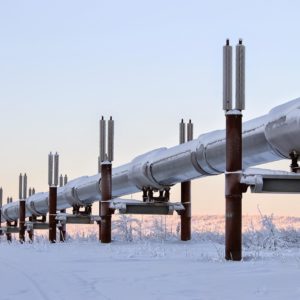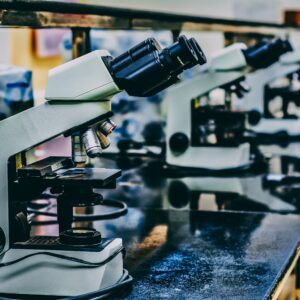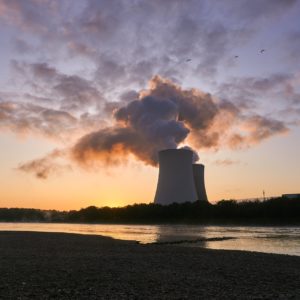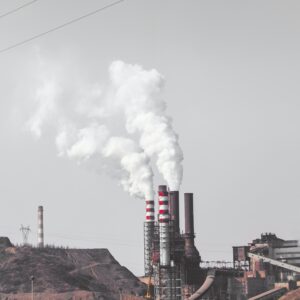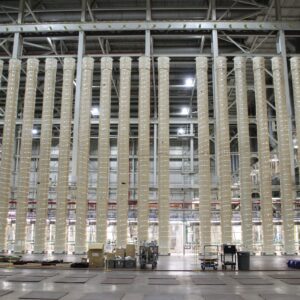Lisa Stiffler of GeekWire reports on a startup that measures corporate emissions. “If corporations had more accurate scope 3 data, they could optimize their efforts to reduce emissions and adjust supply chain operations, which could shave 7% off global emissions, Chalat said, citing research.” Read the full article here.
How climate activists badly missed the mark on Willow drilling project
"If climate advocates claim to value local knowledge, indigenous communities or even basic math, calling these back-to-back announcements anything other than a win is pure hypocrisy."
New IPCC Report Should Inspire Hope, Not Panic
Elijah Gullett writes in RealClearEnergy about the latest UN climate change report. “The IPCC report will undoubtedly produce more doomsday headlines in the coming weeks, but rather than embrace despair, we should use the IPCC’s insights to prepare for climate challenges. We have all the tools we need to combat climate change: human ingenuity and...
TerraPower Isotopes: Nuclear Innovation to Advance New Cancer Treatments
"TerraPower Isotopes aims to bring a scalable solution to the precision medicine market. The proven production methods that TPI employs, along with the vital work of public and private partners, will establish a reliable supply of Actinium-225, and the delivery of this key isotopic starting material to drug developers. This enhanced Actinium-225 supply chain will enable the advancement of drug development trials and increase the research and deployment of advanced cancer treatment options."
This Startup Says It Can Breed A Better Tomato On Demand
"What Sound Agriculture did, Bayer explains, was develop a solution made up of pieces of the tomato’s own DNA that, when a plant is alive, helps to guide particular genes to turn themselves on or off. In this case, they selected bits of the plant DNA that regulated the cell walls of the tomato. The company soaked the tomato seeds in this solution as they started to germinate, locking in the gene expression pathway."
A new nuclear reactor in the U.S. starts up. It’s the first in nearly seven years
"However, because nuclear energy is generated without releasing carbon dioxide emissions, which cause global warming, the increased sense of urgency in responding to climate change has given nuclear energy a chance at a renaissance."
DOE to offer $2.5B for carbon capture projects at power plants, industrial sites
"The program focuses on projects that can be replicated at power plants and major industrial sources of carbon emissions, such as cement, pulp and paper, iron and steel plants, the department said."
Venezuela’s Oil Industry, Reopening to Investors, Is Major Polluter
"'It’s not even happening once in a while anymore, we’re now talking about spills and leaks that are practically constant because there’s no personnel to handle them,' Mr. Quero said. Venezuela has seen many experienced oil field technicians and laborers flee the country over the past decade as the economy tanked and as the collapse of the local currency, the bolivar, rendered salaries the equivalent of a few U.S. dollars a month, oil union leaders say."
Centrus Competes Construction, Initial Testing of HALEU Demonstration Cascade
"Centrus’s pioneering cascade uses gas centrifuge machines, which feed uranium hexafluoride (UF6)—heated to a gaseous state—into a rotor inside the centrifuge machine. A rotor spinning at high speed inside a steel casing uses centrifugal force to concentrate the heavier U-238 isotopes at the outer wall of the rotor and the lighter U-235 isotopes toward the rotor center. The streams are then fed to the next machines in a “cascade” to achieve the desired level of enrichment. Centrus will use a 4.95% LEU feed material for its planned HALEU 16 AC100M-centrifuge cascade. It suggests roughly 85% of the separative work units (SWU)—a measure of enrichment needed to produce HALEU—is already contained in the LEU feed material."
Maximizing the climate benefits of natural gas exports
"Some opponents of gas contend that new gas pipelines will lock in long-term emissions, but much gas infrastructure can be retrofitted to carry hydrogen or carbon dioxide captured from power plants. European companies announced recently they will build new power plants that will run first on gas, then on hydrogen produced from gas with carbon capture and storage, and finally on hydrogen made using renewable energy. These investments are an example of what many energy technology experts expect to be a variegated electricity production system, with the wide range of natural gas and hydrogen related plants getting power from differing but increasingly clean sources."
Copyright © 2020 Conservative Coalition for Climate Solutions

